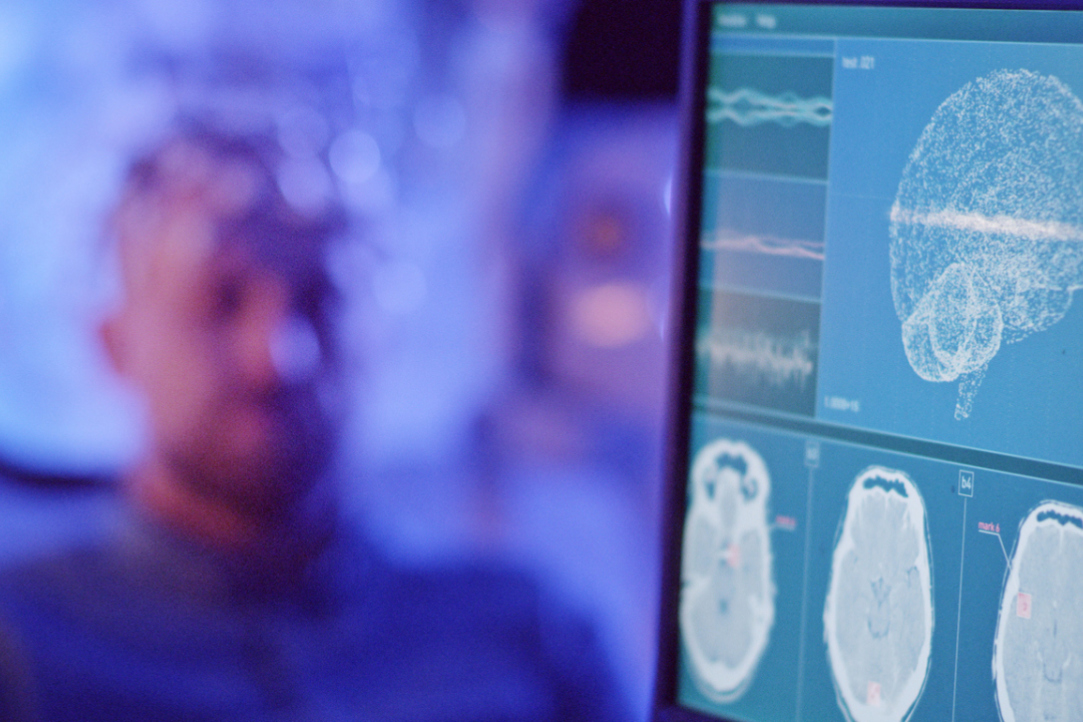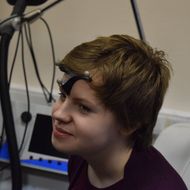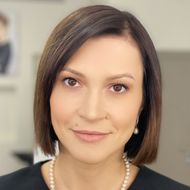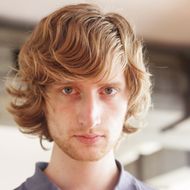Neuroeconomical Research, Speech Tests for Neurosurgical Operations and New Discoveries in Mathematics

At the end of 2022, the results of the Project Competition in Basic Science Research for Intercampus Departments were announced. This was the inaugural competition, and focused on encouraging new research teams at HSE University and developing intercampus cooperation in the field of fundamental research. Here, HSE News Services looks at four winning projects.
‘Neuroeconomical Studies of Consumer Behavior: Neuronal Correlates and Behavioral Factors’
This is a project by the Institute for Cognitive Neuroscience at HSE University in Moscow (project manager — Oksana Zinchenko), and a research team led by Sofya Kulikova from HSE University in Perm.
A scientific interest in the study of various aspects of consumer behavior is what brought together these researchers, and over the past two years they have built close academic cooperation. In particular, they have organised guest presentations at research seminars, and colleagues from Perm have reviewed theses by students on the ‘Cognitive Sciences and Technologies: From Neuron to Cognition’ master's programme.

Oksana Zinchenko
‘Nutrition is one of the basic human needs, however the neuroeconomic mechanisms underlying the processes of choosing products and determining an individual's willingness to pay for them remain understudied. This process is influenced by many factors, including the organoleptic properties of products, and the individual characteristics of a person, as well as various informational and social factors, such as information about the organic origin of ingredients or the environmental friendliness of the packaging.’
Oksana Zinchenko adds that in order to effectively influence food consumption behavior (for example, in order to reduce the consumption of unhealthy food), we need to understand what contribution, and at what stage, each of these factors makes to the food selection process and which structures of the human brain are involved in making decisions. Neuroeconomics theory asserts that while choosing something, a person seeks to maximize the subjective expected utility, but we still need to find out how the hedonistic component of food and our ideas about its beneficial/harmful biological properties relate to each other.
Teams from HSE Moscow and Perm are starting to implement a series of studies in order to analyse this issue. They plan to prepare joint publications, reports at conferences, and obtain access to equipment, software and databases, as well as attending joint seminars and other events on the theme of this project.
‘Neuroanatomic Correlates of Language'
This is a project by the HSE Center for Language and Brain in Moscow (project manager — Olga Dragoy) and HSE Center for Language and Brain in Nizhny Novgorod (project manager — Mariya Khudyakova). It is dedicated to the study of neuroanatomic correlates of language in the context of neurosurgical surgery. The centres are equipped with the necessary equipment, and the work of researchers is supported by clinical bases in both cities.

Olga Dragoy
‘The removal of some brain pathologies, such as tumors, is associated with the potential to damage the parts of the brain that control speech function. Therefore, the gold standard of modern neurosurgery is the mapping of speech and other cognitive functions in operations while the patient is conscious. The surgeon stimulates certain areas of the brain, and at the same time, neurolinguists or neuropsychologists present tasks to the patient. If the stimulation coincides with a speech stop or other short-term cognitive disorder, this part of the patient's brain is critical for the implementation of this function.’
Researchers from Moscow will focus on the intracranial part of the study — they will develop tests for distinguishing phonemes and understanding words, and creating a tablet application. The programme will present tasks to the patient automatically, and synchronise the actions of the surgeon and the neurolinguist (neuropsychologist), as well as recording the results.
Researchers from Nizhny Novgorod will study speech before and after surgery to remove brain tumors, focusing on formal standard testing. This will determine the speech profiles of patients before and after surgery, as well as the progress of their recovery.
‘Text as Big Data: Modeling Convergent Processes in Language and Speech with Digital Methods’
This is a project by the Linguistic Convergence Laboratory at HSE University in Moscow (project manager — Georgy Moroz), and a research team led by Tatiana Sherstinova, HSE University in St Petersburg. Boris Orekhov (Moscow) and Anastasia Kolmogorova (St. Petersburg) are also among the main participants in the project. The researchers are united by an interest in computational linguistics and digital humanities.
The Moscow laboratory is primarily engaged in looking at oral speech, and the development of tools for its research. They will apply their accumulated experience in field work, collecting and processing authentic audio material. The St. Petersburg School of Arts and Humanities is conducting interdisciplinary research into literary texts and everyday speech on the basis of a developed corpora with the involvement of modern text processing technologies.
Moscow and St. Petersburg linguists are implementing a joint project for the first time.

Georgy Moroz
‘Thanks to new digital tools, on the one hand, we can leave a large text footprint, and on the other hand, it becomes possible to quickly process large collections of oral and written speech. The main idea of the project is to use large text data generated by different groups of native speakers as a data source for modeling the processes currently taking place in languages and society.’
The project focuses on modelling the correlation of various speech registers based on the material of large text data (everyday oral speech, communication in social networks, fiction texts, corpora of subtitles for movies and TV series).
The researchers plan to create philological and linguistic resources, conduct joint scientific events, travel to linguistic expeditions, conduct field work to collect oral speech material, write articles and more.
They also plan to create electronic resources which will help to model convergent processes observed at different linguistic levels between texts of different genres. The project will help the researchers to get closer to solving the actual problems of text processing and generation.
‘Development of Analytical and Numerical Methods for the Study of Multidimensional Dynamical Systems’
This project is being implemented by International Laboratory of Dynamical Systems and Applications at HSE University in Nizhny Novgorod (project manager — Alexey Kazakov), and a research team led by Maria Belova, HSE University in Moscow. Its main task is to develop new analytical and numerical integration methods for important classes of differential equations to which known methods are not applicable or limited.

Alexey Kazakov
‘While preparing to defend my doctoral dissertation at the Dissertation Council for Engineering Sciences and Applied Mathematics, I met some colleagues from MIEM. We realized that we are solving similar problems, but using different approaches. We thought it would be good to work together, and when HSE announced a competition for projects on cooperation between groups from different campuses. Maria invited me to participate.’
The Nizhny Novgorod team of researchers, in addition to the team leader, includes Professor Sergey Gonchenko, follower of the famous Nizhny Novgorod mathematician L.P. Shilnikov, an outstanding specialist in the field of qualitative methods of dynamical systems research, and Natalia Stankevich, one of the leading experts in the field of numerical methods for the study of dynamical systems.
At HSE University in Moscow, Dmitry Sinelshchikov and Sergey Aksenov, associate professors at MIEM are also implementing the project alongside Maria Belova. Both Moscow and Nizhny Novgorod researchers have also invited their students and doctoral students to join the project.
‘Many processes and phenomena can be described using dynamic systems. Mathematically, dynamic systems are often differential equations and possibly a set of some additional conditions. Mathematicians call equations, all solutions of which can be described in mathematical language, integrable,’ explain the project managers.
You can take three ways to get information about the process, which is described by differential equations that are not integrated by known method. The analytical approach involves the development of methods that allow us to obtain solutions by formulas in which well-known functions appear. In the asymptotic approach, either the equation or the solutions are simplified. The numerical approach is based on the application of numerical modeling, and one of the tasks of this project is related to the development of numerical methods for the study of multidimensional dynamic systems.
The results of the project will be published in leading journals, and presented at all-Russian and international conferences. Two candidate's and two doctoral dissertations will be defended following the project results.

